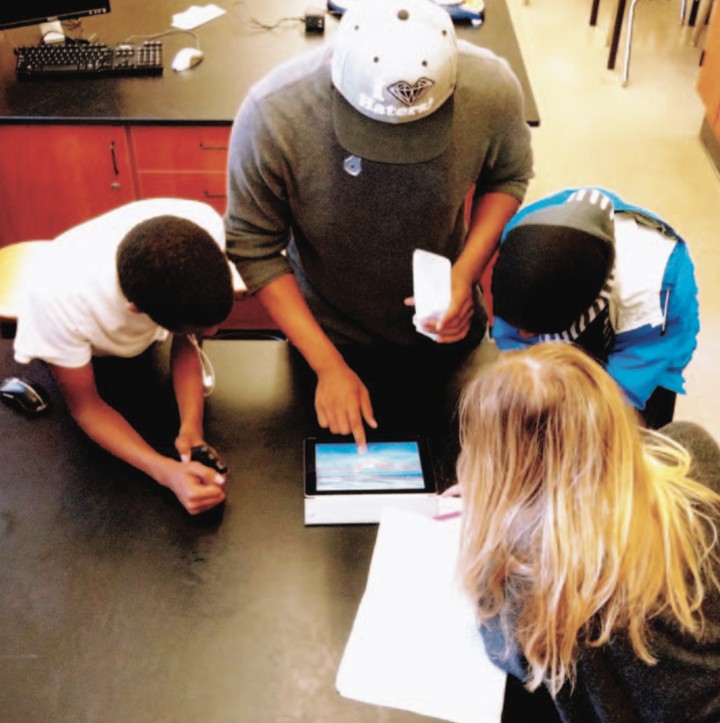Benefits and limitations of iPads in the high school science classroom and a trophic cascade lesson plan

Abstract
This study explores the utility of a set of tablet-based personal computers in the K–12 science, technology, engineering, and mathematics classroom. Specifically, a lesson on food-chain dynamics and predator–prey population controls was designed on the Applet iPad platform and delivered to three sophomore-level ecology classes (roughly 30 students per class with six iPads). Questionnaire feedback indicated that most students greatly enjoyed and were engaged in the activity. Further, student understanding of core concepts generally increased after participating in the tablet-based activity. Here, the iPad was essentially used as a data generator for a calculation-based activity, which is one of many potential applications of a class set of tablets. The collective results of this study indicate that student engagement and concept building is enhanced by immersive, tablet-based activities and a lesson plan that can be readily used in K–12 science classrooms is provided.